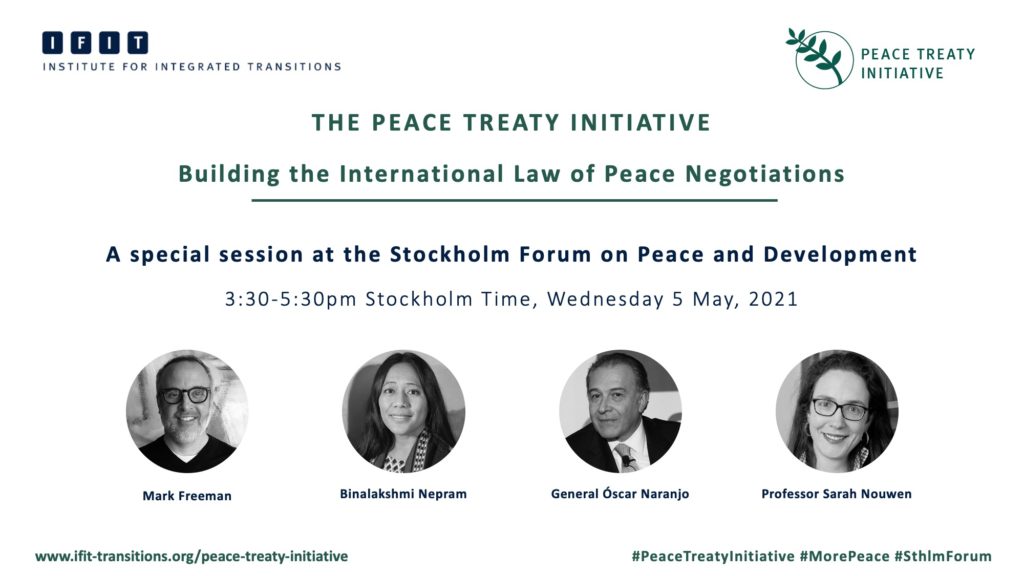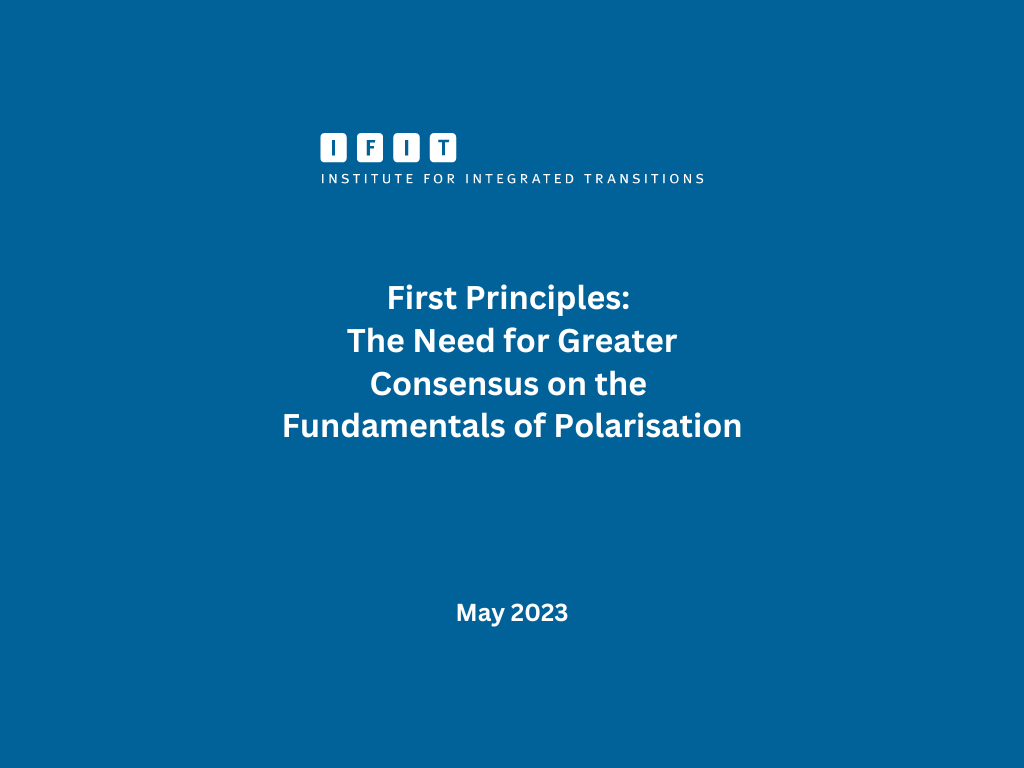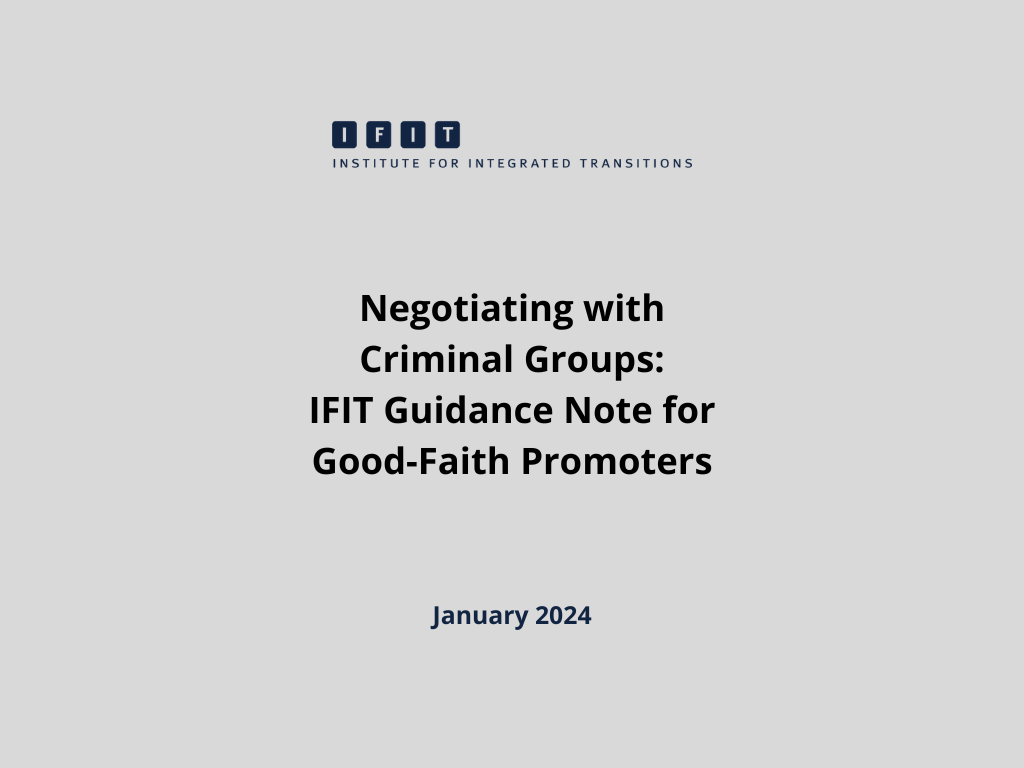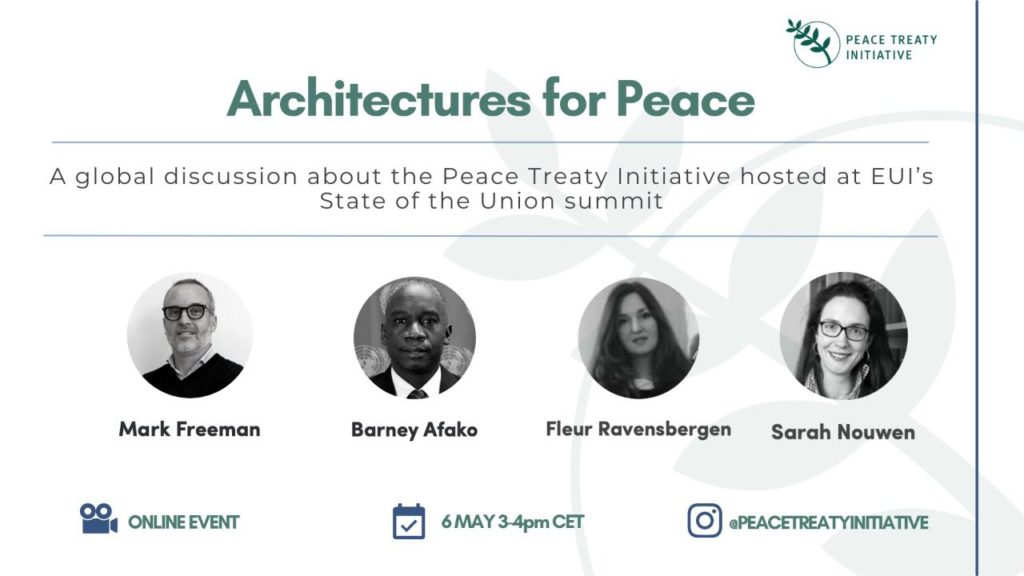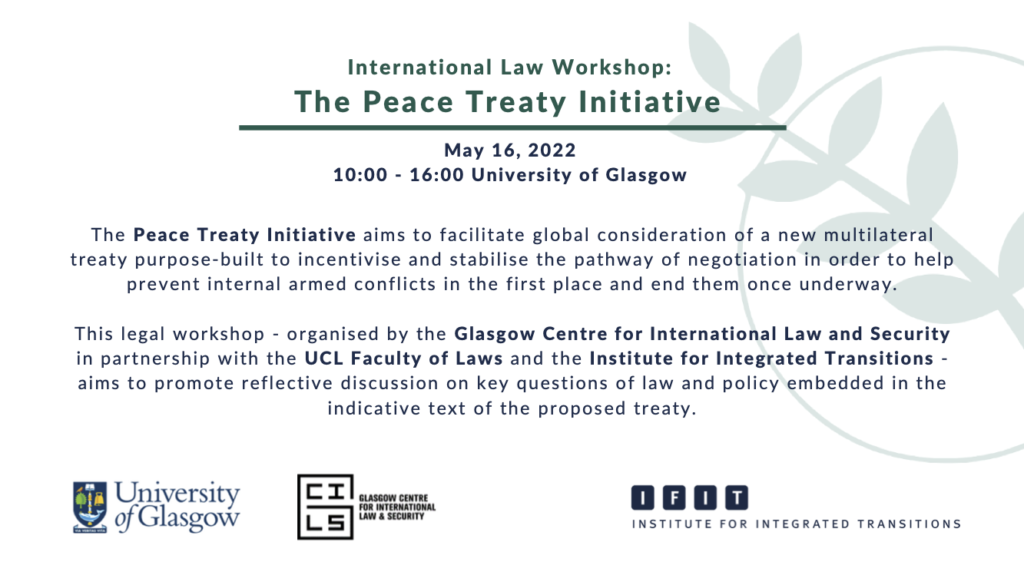Expert Team: Expert Advisory Group
Monica McWilliams was a signatory of the 1998 Good Friday Peace Agreement and served as a member of the first Northern Ireland Legislative Assembly.
She was the Chief Commissioner of the Northern Ireland Human Rights Commission from 2005-2012, responsible for delivering the advice on a Bill of Rights for Northern Ireland. She currently serves on the Independent Reporting Commission on the disbandment of paramilitary organisations and was previously the oversight commissioner for prison reform in Northern Ireland. She cofounded the Northern Ireland Women’s Coalition political party, acting as its lead negotiator at the Multi-Party Peace Talks that led to the Good Friday Peace Agreement. She is an Emeritus Professor at Ulster University, and a graduate of Queen’s University, Belfast and the University of Michigan, Ann Arbor.
Her memoir, ‘Stand Up, Speak Out’, was published in 2021. As former Irish prime minister Bertie Ahern wrote at the time: “Monica McWilliams undoubtedly played one of the most pivotal roles in the Northern Ireland peace process.” Monica has worked in a range of war torn societies and published the first longitudinal study on domestic violence during political conflict. She is a joint recipient of the Profile in Courage Award from the John F. Kennedy Library Foundation. In 2023, she was elected a member of the Royal Irish Academy.
You may also be interested in
Miriam Coronel-Ferrer is a full professor at the University of the Philippines, teaching courses and publishing on comparative governments and politics of Southeast Asia, human rights, peace processes, and democratization.
Miriam previously headed the Government of the Philippines panel in the peace talks with the Moro Islamic Liberation Front that culminated in the signing of the Comprehensive Agreement on the Bangsamoro in March 2014. She led governmental negotiations, consultation, and strategizing processes, and was also responsible for setting up the peace infrastructure and supervising the first two years of implementing the accord.
Miriam is also a former member of the UN Standby Team of Senior Mediation Advisers, where she supported UN engagements in the Maldives, Afghanistan, and the ASEAN region.
Miriam has also been extensively involved in national civil society campaigns, co-leading the initiative to draft the National Action Plan on Women, Peace and Security that was adopted by the Philippine government in 2010. In addition, she has been part of international CSO-led human rights/peace missions in Nepal, East Timor, Cambodia, the Philippines, Myanmar, and Sudan.
Miriam was one of the four recipients of the 2023 Ramon Magsaysay Awards for championing inclusivity and women’s participation in peace-building.
You may also be interested in
Mahnoush H. Arsanjani is a leading international lawyer. She served in the United Nations Office of Legal Affairs for over 30 years in various positions. She was Director of the Codification Division and Secretary to the United Nations International Law Commission, and also Secretary of the Committee of the Whole of the Rome Conference on the Establishment of the International Criminal Court. She served as a member of the Bahrain Independent Commission of Enquiry, established in June 2011 by the King of Bahrain to investigate and report on events in Bahrain in 2011. She was a member of the Expert Group established by the 2008 Ad Hoc Energy Ministers Meetings Held in Jeddah and London, and also served as a special consultant to the International Energy Forum which drafted the Charter of the International Energy Forum. She was Vice President of the American Society of International Law and is a member of the Board of Editors of the American Journal of International Law. She is a member of the Institut de Droit International. She has published widely and lectured at leading universities and institutions on international law, international tribunals and international institutions. She is currently a Vice-President of the World Bank Administrative Tribunal.
You may also be interested in
Kathryne Bomberger is the Director-General of the International Commission on Missing Persons (ICMP) and has worked in the field of international relations, human rights, politics and conflict prevention for the last 20 years. Since 1998, she has led the development of ICMP, which is today the world’s leading human rights and rule of law organization dedicated exclusively to helping governments address missing persons issues arising from war, human rights violations, migration, organized crime, natural disasters and other causes. She was appointed ICMP Director-General in 2004.
Since its creation in 1996, ICMP has been transformed from an ad hoc mechanism tasked with assisting countries emerging from the conflicts in the former Yugoslavia to a treaty-based international organization with global reach. Kathryne Bomberger has consistently sought to ensure that the global challenge of missing persons is addressed by governments as an urgent priority, in a manner that is modern, effective and based on the rule of law.
Ms Bomberger has worked in conflict and post-conflict areas as well as in areas affected by disasters and by organized crime (including the Western Balkans, Cyprus, Armenia, Iraq, Libya, Lebanon, Ukraine, Mexico, Colombia, Haiti, and the Philippines), helping governments, courts, prosecutors, NGOs, scientists, academics and others to build capacity to address the cross-cutting issue of missing persons, including through the development of effective institutions and legislation. She has spoken on the issue of missing persons at countless public forums, including the United Nations and the US Congress, and she has been interviewed by the BBC, the Guardian, the New York Times, the Financial Times, the Economist and many other media outlets, as well as participating in TV and film documentaries. Her numerous awards include recognition by the President of France as a Chevalier de la Legion d’Honneur.
Before joining ICMP, Kathryne Bomberger worked for the Organization for Security and Cooperation in Europe, the UN, and the US Senate. She has an undergraduate degree in History and a graduate degree in International Relations, with a focus on Middle East Studies, from the Elliot School of International Relations at the George Washington University in Washington, D.C. She is an American national currently residing in The Hague, the Netherlands.
You may also be interested in
Issaka Souaré is a member of the UN Standby Team of Senior Mediation Advisers. In
that capacity, he has advised the AU Facilitator in the Democratic Republic of Congo (DRC) on the conduct of the national dialogue. In the Central African Republic, he has supported strategic reflections of the UN mission (MINUSCA), the African Union and the CAR Government on a dialogue process with non-state armed groups. He provided advice to the Secretary General’s Personal Envoy on Western Sahara, and has supported the UN Mission in the Democratic Republic of Congo to the design of a mediation strategy to guide talks with the Patriotic Resistance Front of Ituri (FRPI). He also supported dialogue related initiatives in Chad, Malawi, Togo, São Tomé and Príncipe, Zambia and Haiti. From 2013-2016 he was Special Adviser to the AU High Representative for Mali and the Sahel, working on the Mali peace processes. Issaka has also served at the AU Commission in policymaking and analysis roles, with a focus on early warning and preventive diplomacy. He speaks Arabic, English and French.
You may also be interested in
Hyeran Jo is Associate Professor at the Department of Political Science at Texas A&M University in U.S.A. She studies international institutions, international law, and civil conflicts. Her book, Compliant Rebels: Rebel Groups and International Law in World Politics (Cambridge University Press, 2015), won the Chadwick Alger Prize in 2016, the best book in the field of international organization, awarded by the International Studies Association. Her work can also be found in journals such as International Organization, Journal of Conflict Resolution, British Journal of Political Science, Journal of Peace Research, and Law and Contemporary Problems. Her research has been supported by the U.S. National Science Foundation, Buffett Foundation, and Alexander von Humboldt Stiftung.
You may also be interested in
Mr. Youssef is currently the Jennings Randolph Senior Fellow at USIP. A career diplomat, he joined the Ministry of Foreign Affairs of Egypt in 1985. He was posted to the Egyptian Embassy in Canada (1988-1992) and the Egyptian Mission in Geneva where he focused mainly on economic and trade issues in the United Nations and the World Trade Organization (1995-1999). He was a member of the Cabinet of the Egyptian Minister for Foreign Affairs in the periods 1992-1995 and 1999-2001.
In 2001, he joined the Arab League where he was the Official Spokesman and became the Chief of Staff of H.E. Amre Moussa the Secretary General of the Arab League in the period 2003- 2011.
By mid-2011, Mr. Youssef took a leave of absence from the Arab League and was the Campaign Manager of Mr. Amre Moussa in his presidential campaign. After the presidential campaign in Egypt ended by mid-2012, Mr. Youssef returned to the Arab League and was a Senior Advisor to the Secretary General, Dr. Nabil Elaraby, on issues pertaining to crisis management as well as the reform of the Arab League.
In July 2014, Mr. Youssef joined the Organization of Islamic Cooperation as an Assistant Secretary General for Humanitarian, Cultural and Social Affairs. He completed his term in June 2019 and then Joined the United States Institute of peace as a Senior Fellow focusing on the Israeli Palestinian conflict from July 2019 to the present.
Mr. Youssef graduated with a bachelor’s degree in physics from the Faculty of Science, Cairo University, in 1980. He then worked as a teacher at Cairo University (1980-1982). Mr. Youssef was a teaching assistant in the Physics Department at the American University in Cairo in 1982 and at Lehigh University in Bethlehem, Pennsylvania 1983. He earned a master’s degree in Liberal Arts from St. John’s College in Santa Fe, New Mexico (August 1983) and another master’s degree in Economics from the American University in Cairo (February 1988).
You may also be interested in
Mr. Diego García-Sayán has served as UN Special Rapporteur on the independence of judges and lawyers since December 2016. Mr. García-Sayán was a judge of the Inter-American Court of Human Rights for two consecutive terms. During his tenure, he was elected Vice-President of the Court (2008-2009) and President of the Court for two consecutive terms (2009-2013).
Mr. García-Sayán has broad experience working for multilateral organizations such as the United Nations and the Organization of American States. Previous responsibilities include: representative of the UN Secretary-General for the Peace Agreements at El Salvador and for the subsequent verification of the agreements, reporting directly to the Security Council; member and Chairperson of the UN Working Group on Enforced or Involuntary Disappearances; member of the Redesign Panel on the United Nations System of Administration of Justice, appointed by the UN Secretary-General in 2006; Head of the Electoral Mission of the Organization of American States (OAS) in Guatemala during the general elections (2007).
Mr. García-Sayán was Minister of Justice during the democratic transition in Peru and Minister of Foreign Affairs. He was also President of the High Level Commission to design and implement the Museum of Memory, Tolerance and Social Inclusion in Peru, inaugurated in December 2015. Mr. García-Sayán is the author of several books on international law and development.
You may also be interested in
Daman Nath Dhungana, MA, BL is a senior advocate and a legal luminary of Nepal. He is a member of Kathmandu University School of Law Planning Advisory Committee.
A former Speaker of the House of Representatives, Dhungana was also a Founder Executive Member of Amnesty International. In 1990 he served as member of the Constitution Recommendation Commission co-drafting Nepal’s second parliamentary Constitution. Dhungana was President of the Supreme Court Bar Association in 1984, General Secretary of the Nepal Bar Association 1971-73 and 1976-79, Founder Executive Member of the Nepal Law Society and President of Transparency International (Nepal Chapter) from 1997 to 1998. To add to his credentials, he served as Member of Parliament, was appointed as National Facilitator, Advisor and Observer of Nepal’s peace negotiations processes from 2003 to 2009, and was the principal advocate for the establishment of a Constituent Assembly in Nepal since the mid 1990’s to draft a new democratic constitution for the country. Dhungana is a founder-member of Nepal Transitions to Peace (NTTP) initiative. Dhungana is also the Chairperson of the Board of Trustees of Kathmandu University.
You may also be interested in
Based in Oslo, Dag Halvor Nylander is the newly-appointed Director of the Norwegian Centre for Conflict Resolution (NOREF). Nylander comes from the position as director and head of the Section for Peace and Reconciliation in the Norwegian Ministry of Foreign Affairs (MFA).
In his diplomatic career, Nylander has held the prominent role of mediator and Norwegian special envoy to Colombia. From 2010 to 2016 he led the Norwegian facilitation of the peace process between the Colombian government and the FARC. This work built on the foundations laid from 2006 to 2008, when he headed the Norwegian embassy in Bogotá. In 2017 he was appointed the United Nations Secretary-General’s personal representative on the border controversy between Venezuela and Guyana, and from 2018 he has been director and head of the Section for Peace and Reconciliation in the MFA. He is a jurist by education and has practised both as a lawyer and an assistant judge.
You may also be interested in


